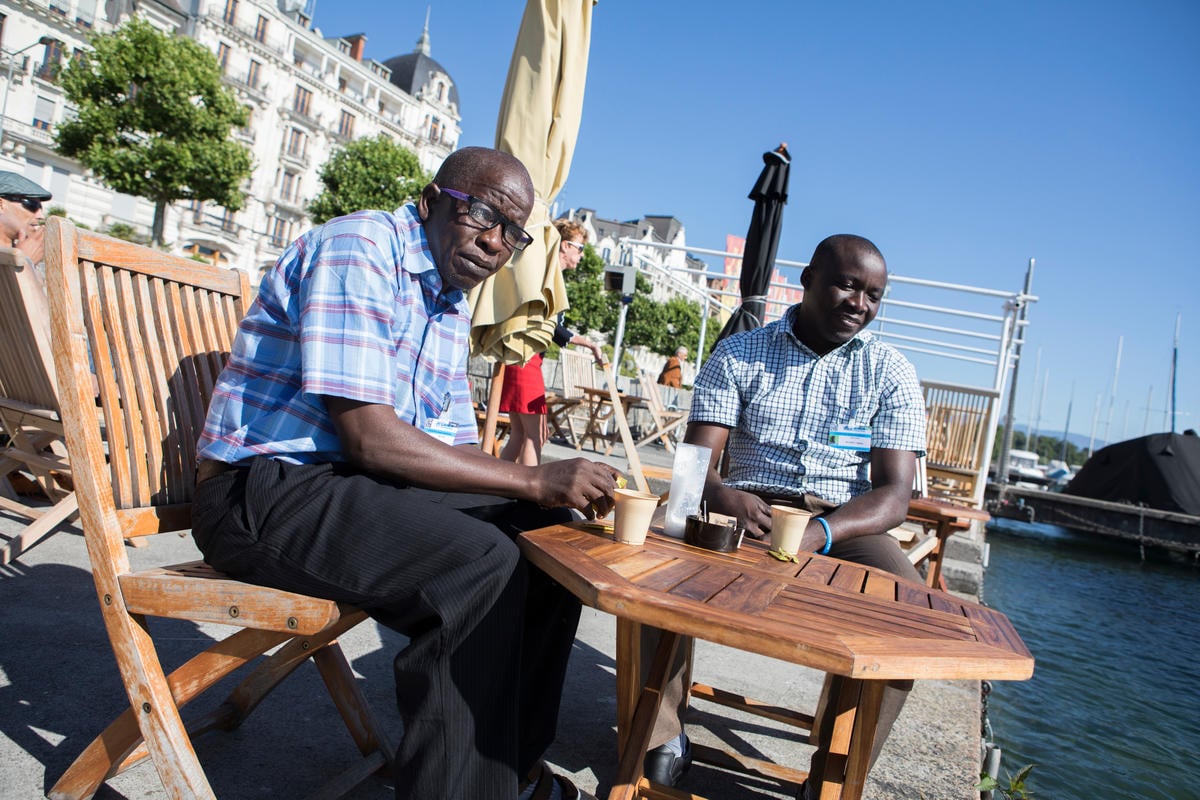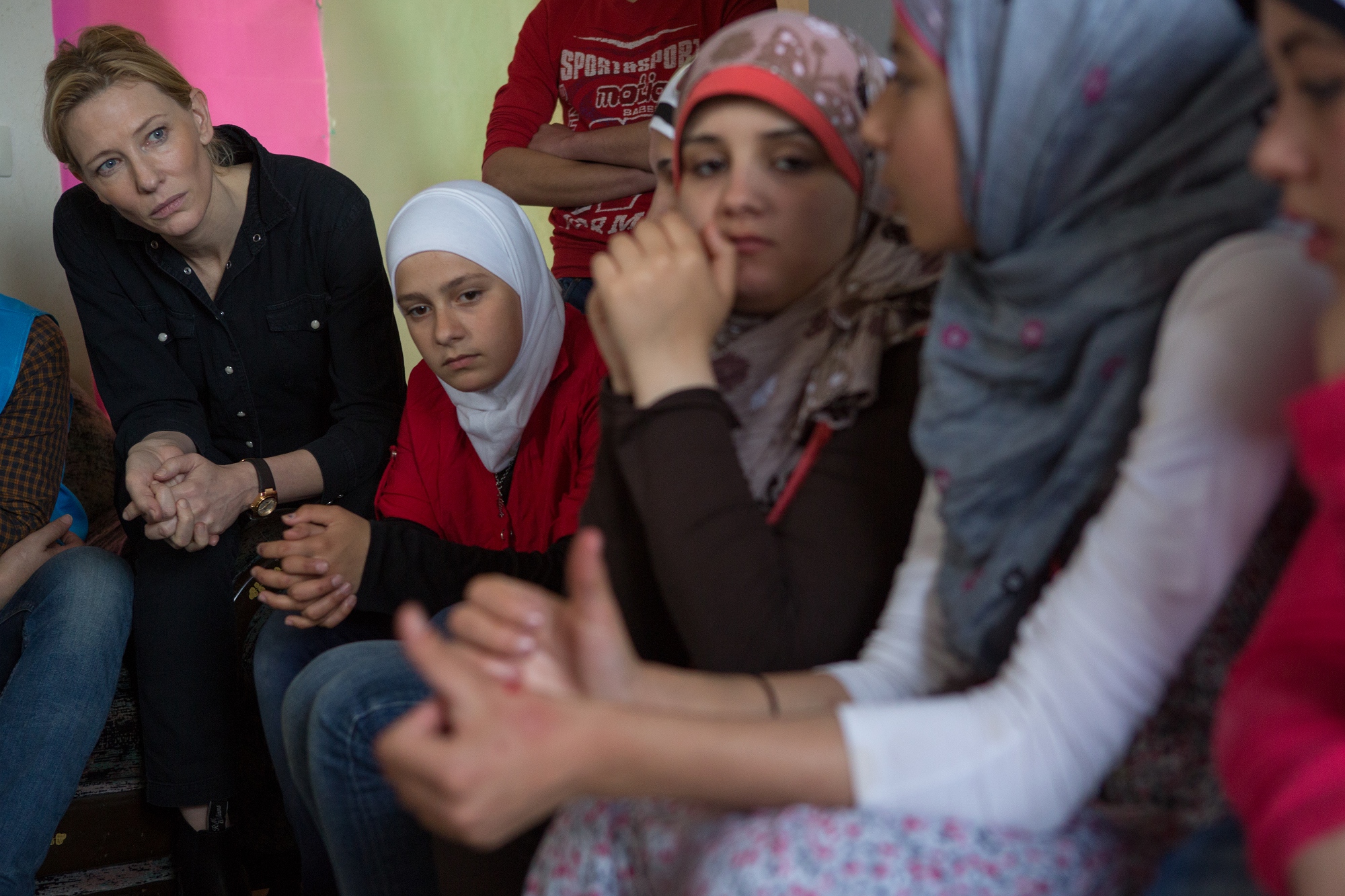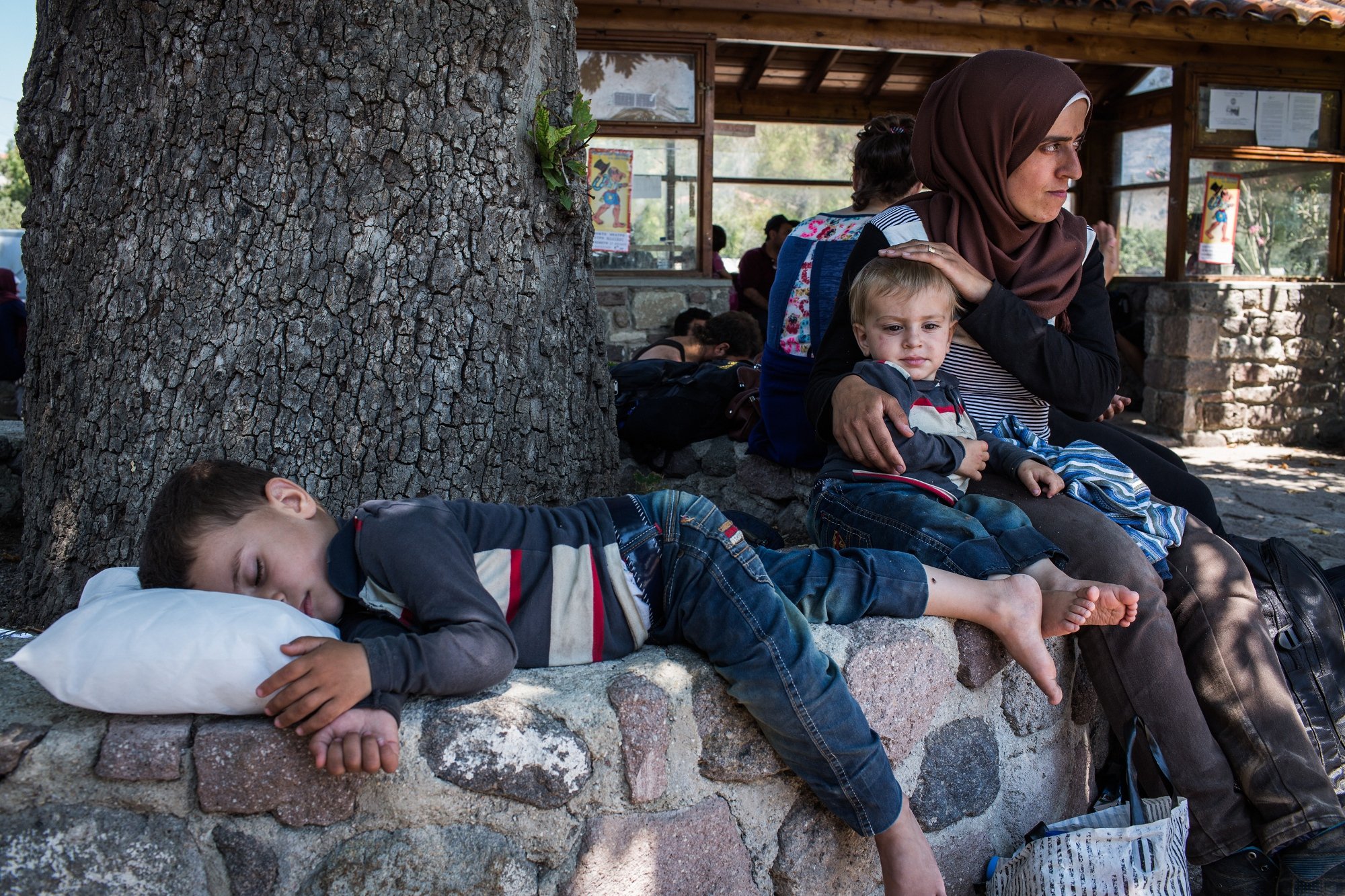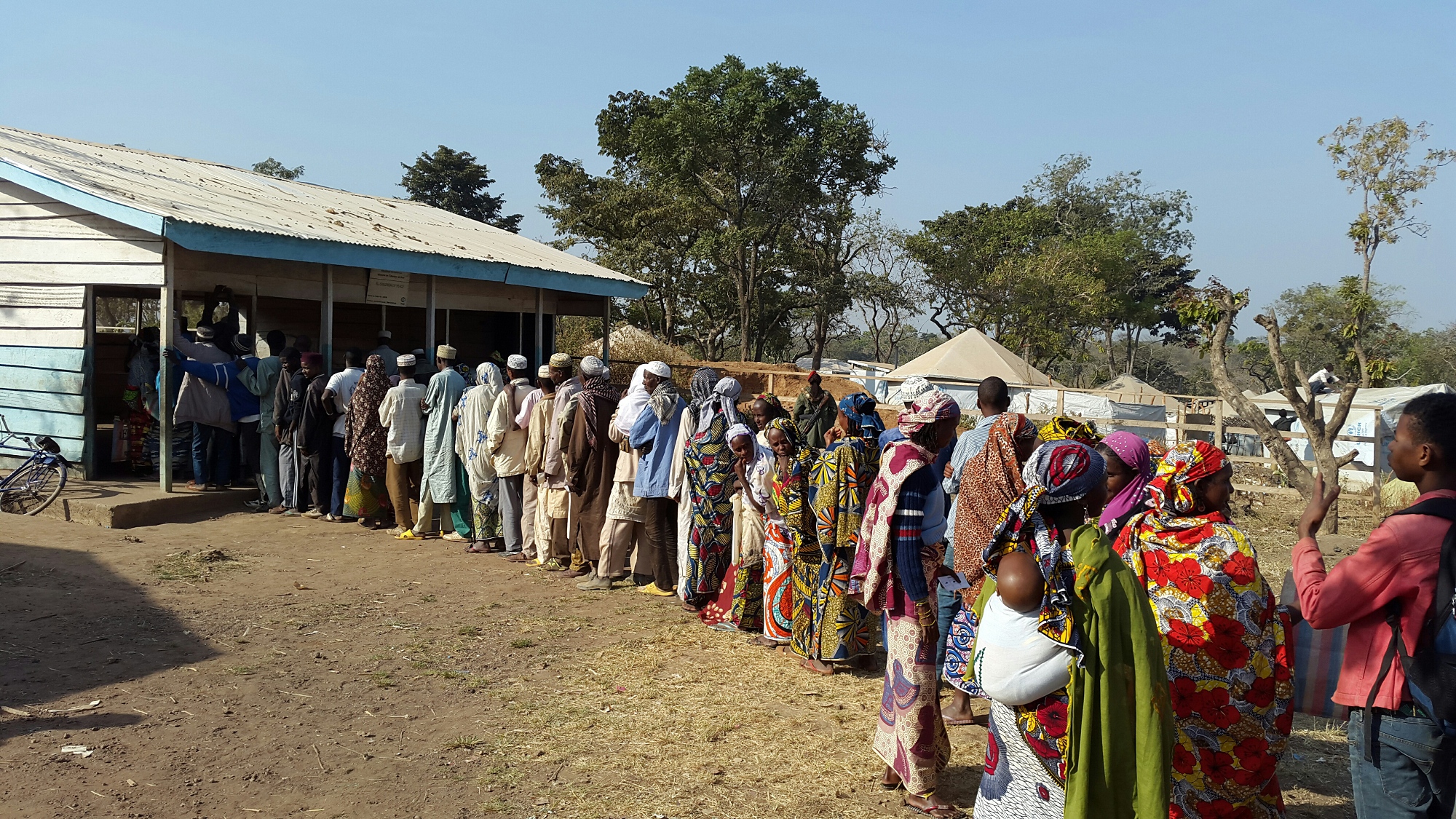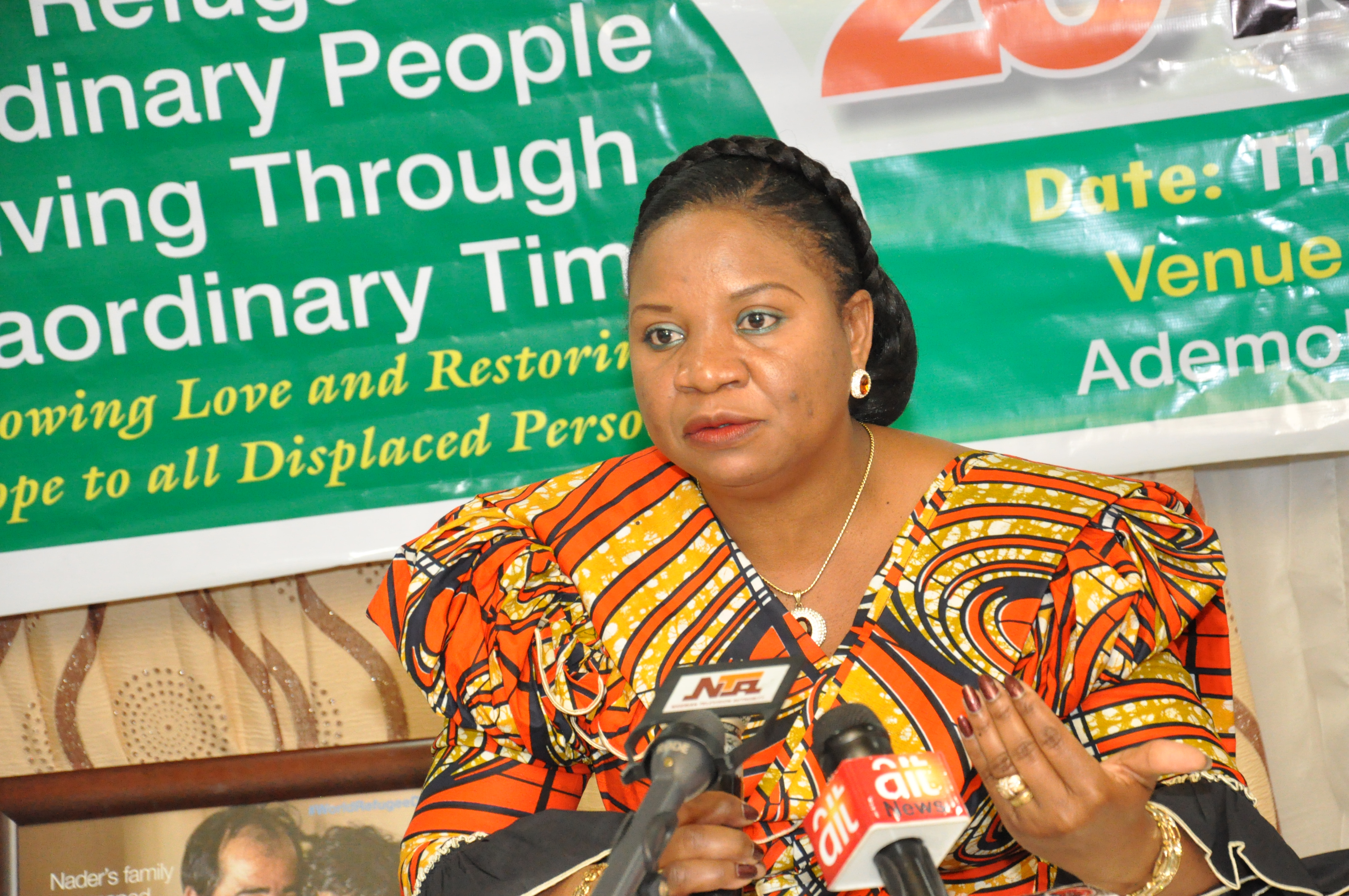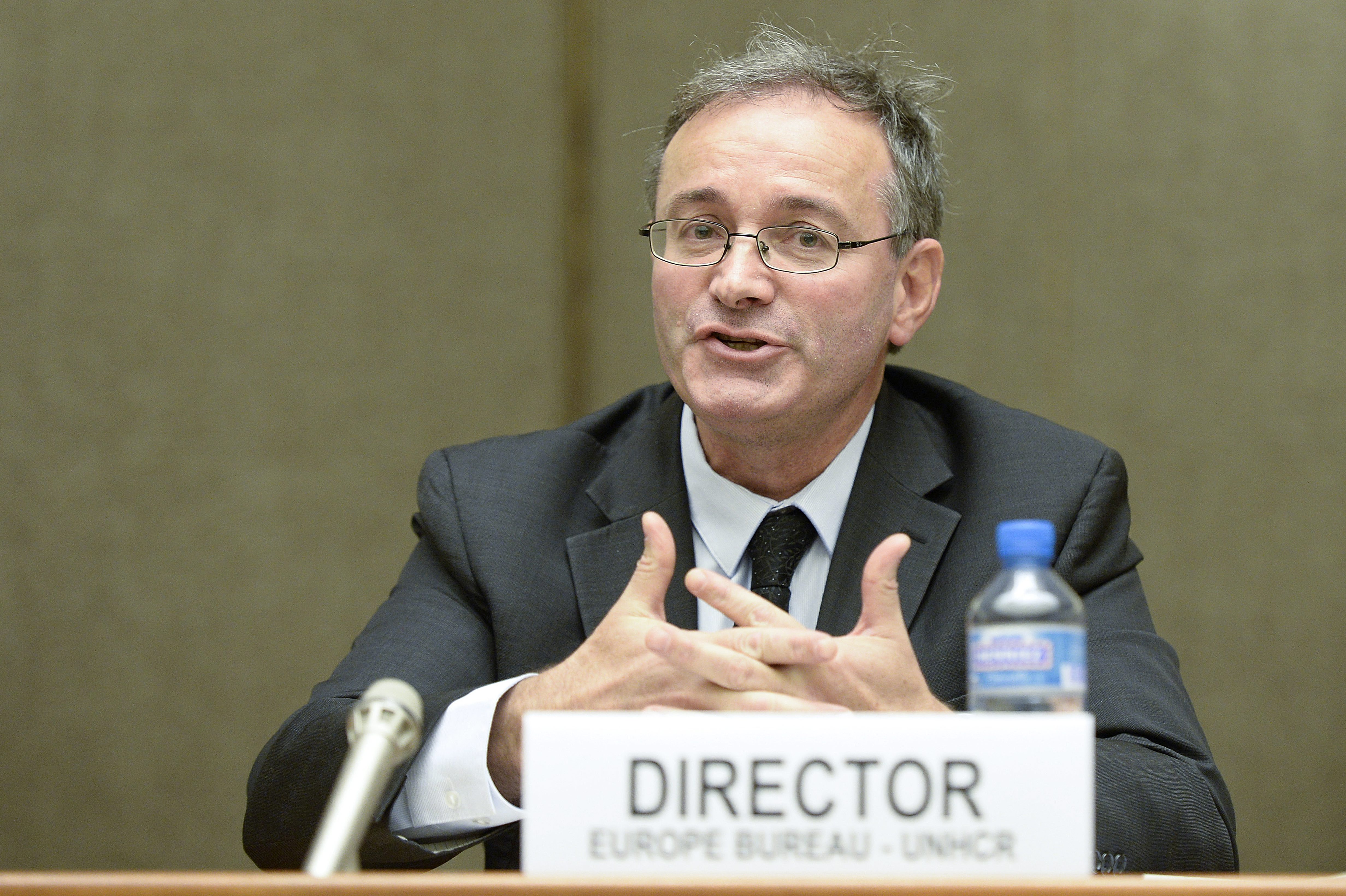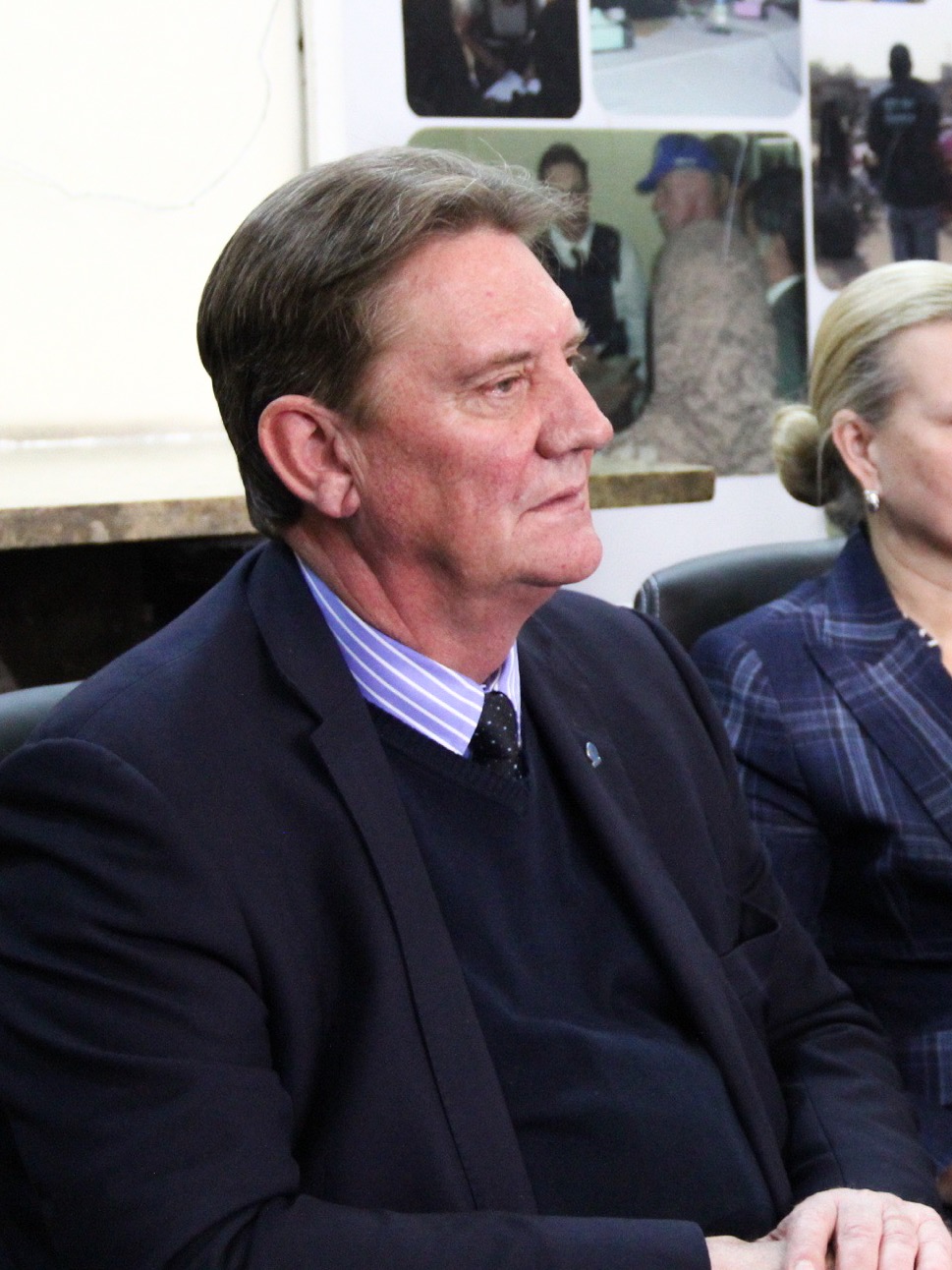Q&A: The son of a refugee, Goodwill Ambassador Dalaras helps today's displaced
Q&A: The son of a refugee, Goodwill Ambassador Dalaras helps today's displaced

ATHENS, March 9 (UNHCR) - Acclaimed Greek musician and singer George Dalaras was appointed a UNHCR Goodwill Ambassador last October after a long and fruitful relationship with the refugee agency. His empathy for uprooted people from around the world comes from his mother's experience as a refugee. In February, he made his first overseas mission as a UNHCR envoy, visiting Sierra Leone and Liberia with his wife Anna, a volunteer worker for the agency. Athens-based Public Information Officer Ketty Kehayioylou recently put some questions to Dalaras. Excerpts from his answers:
Your mother was a refugee? Has this fact shaped your views at all?
Yes, my refugee background - from the side of my mother - has deeply affected me. As a young child, I was able to understand what it means to be a refugee. And I believe that this is very important in civilised societies - for people to be able to understand who a refugee is. A refugee is not a person who wants to leave his or her home and employment, but someone who is forced to flee their country.
From my mother, I certainly learned about all the good things that refugees from Asia Minor brought with them to mainland Greece. Aside from their bitterness and anguish, they also brought with them their songs and their wonderful culture. All this made me respect and appreciate all those people who seek asylum. I also believe that, as Europeans, it is disparaging for our culture and our history if we raise walls to keep out refugees.
You often perform rebetika, songs that emerged from the suffering of Greeks uprooted from Asia Minor. What meaning do they have for you?
The songs of Asia Minor are mainly smyrnaiika, which together with rebetika - which was the marginal music of the last century until 1960 - virtually make up our songs of strength. The rebetika and the smyrnaiika, for us, are full of inspiration, musical variety and remarkable lyrics. They are our blues, our flamenco and they are always inspiring, at least they are for me as a musician. These songs speak very much to the soul of young people. On my international tours, I have come across foreigners who appreciate good music and who know these songs.
How has Greece's history shaped attitudes towards refugees today?
I believe Greeks have been sympathetic to refugees because of the Asia Minor catastrophe [which saw the Greek population of Turkey exchanged with the Turkish population of Greece after the 1919-1922 Greco-Turkish War] and the tragedy of Cyprus [in 1974 when the island was divided and many Greek and Turkish Cypriots displaced], but also from much earlier. The Greeks are generous, hospitable and supportive, probably because we know first hand how it feels to be a refugee or an immigrant in difficult times. Unfortunately, however, I am starting to see an opposite trend among the Greeks. And this is something that we, especially artists and volunteers who work on refugee issues with UNHCR or non-governmental organisations, must try to prevent by raising awareness.
Can you tell us about your involvement with UNHCR?
I have always been very sensitive to refugee issues. From a young age, I have participated in and held hundreds of concerts in aid of refugees. I have been supporting UNHCR since 2001 by holding concerts and assisting with public awareness campaigns and fund-raising.
I think I can help, above all, by raising public awareness. We must knock on the doors of the mass media, so that television, radio, newspapers and magazines will cover stories about refugees and appeal for assistance. Many people want to help, but they drown in a sea of futility, thinking that nothing can be done to improve the situation. But this is not true. Ideally, every citizen must make a small commitment because collectively they can make a difference.
Tell us about your trip to West Africa and why you chose it for your first mission as a UNHCR Goodwill Ambassador
I am Greek and a citizen of the world. And as a citizen of the world, I know that Africa is a priority. We cannot consider ourselves civilised as long as people, especially children, women and other vulnerable groups, are being denied a life of dignity. And this is exactly what I said to the people I met there. I told them that I would do all I possibly could, with the little power I have, to help them achieve this goal.
My experience [in Sierra Leone and Liberia] was shocking. No matter how well you have prepared yourself, you will still be shocked. And of course these overseas missions with UNHCR will continue in the future, in between and in combination with my professional commitments as a singer.
Has becoming a Goodwill Ambassador changed anything?
Yes.... It's not so much the title of Goodwill Ambassador, but what it means to hold this position. I think a lot about which doors I have to knock on and how I will promote the issue of improving asylum procedures, especially in Europe. I also think about how to improve the safety of refugees and their living conditions.
You have donated proceeds from concerts and albums to UNHCR programmes. Are there are other ways that you can help?
Aside from the proceeds from concerts that you mentioned, I am working with the UNHCR office in Athens to draft a comprehensive proposal about how the [Greek] government may offer assistance to countries in Africa where there are refugees. The other thing that we are doing is to meet repeatedly with officials at the public order ministry to ask that they streamline asylum procedures and improve the detention facilities. And the other thing that we do daily is to highlight the demands of refugees and to raise public awareness.
How important is music? Can it help those who live in exile?
Music and the arts are very important for us artists and also for people who are in need. The Greeks of Asia Minor, our grandfathers who were forced to flee Smyrna [now Izmir in Turkey], took great comfort in their songs. Music is the legacy of all peoples.

